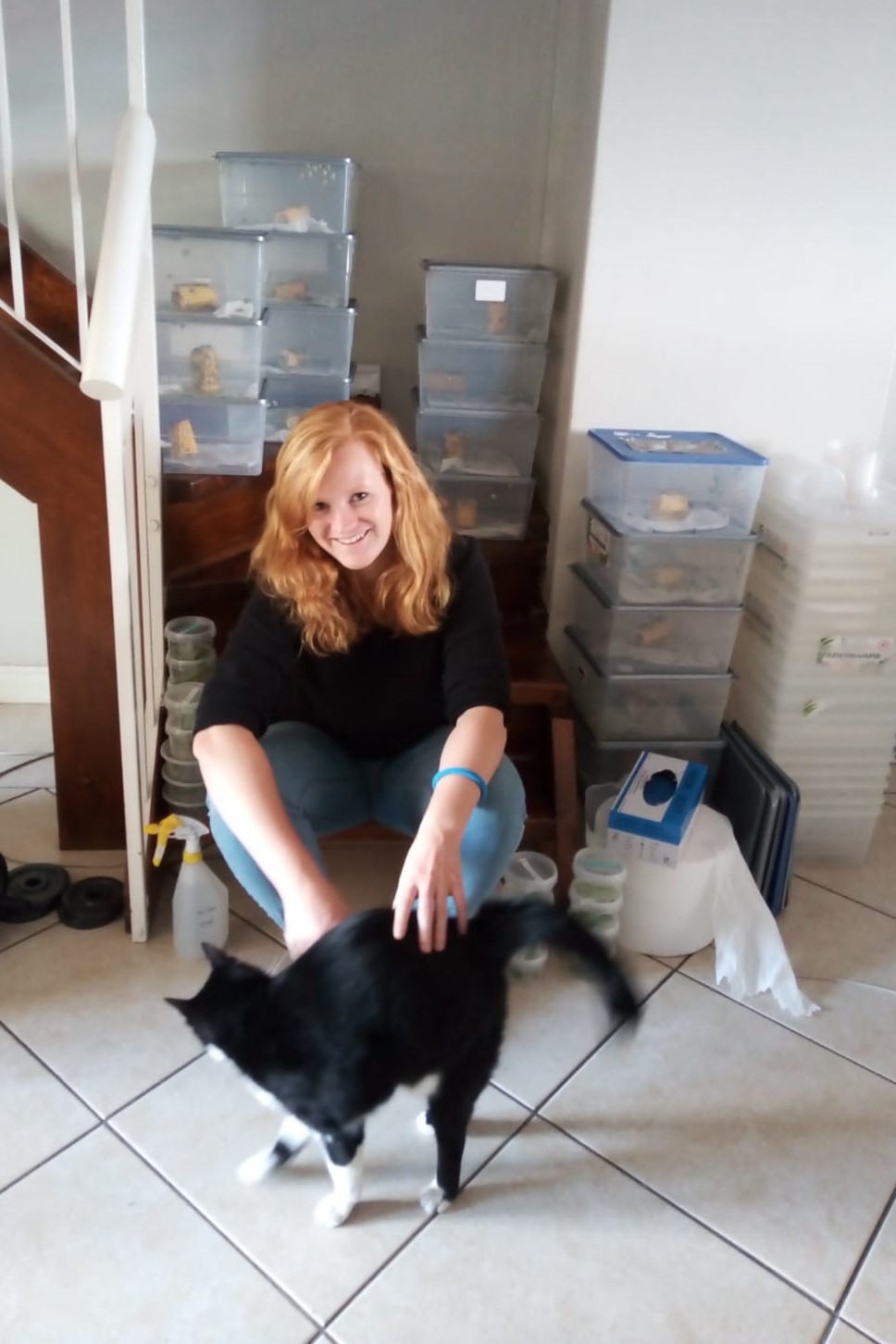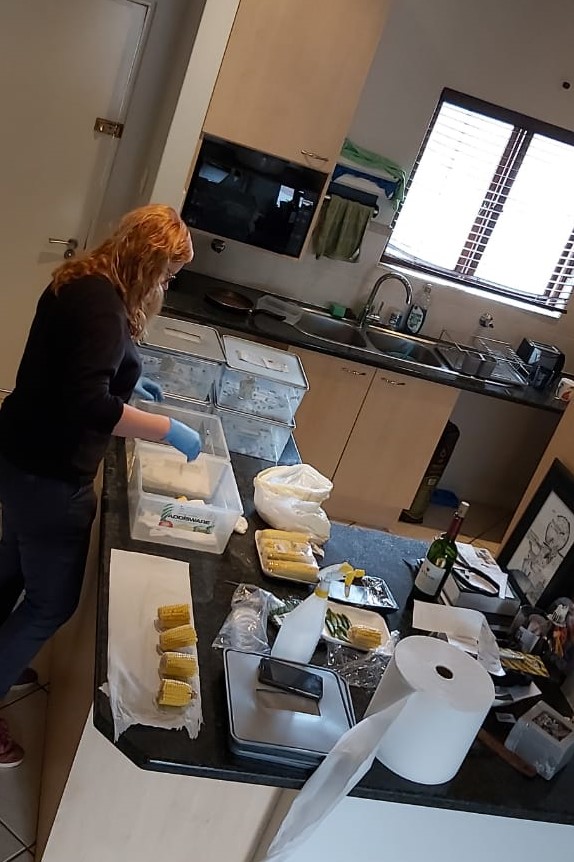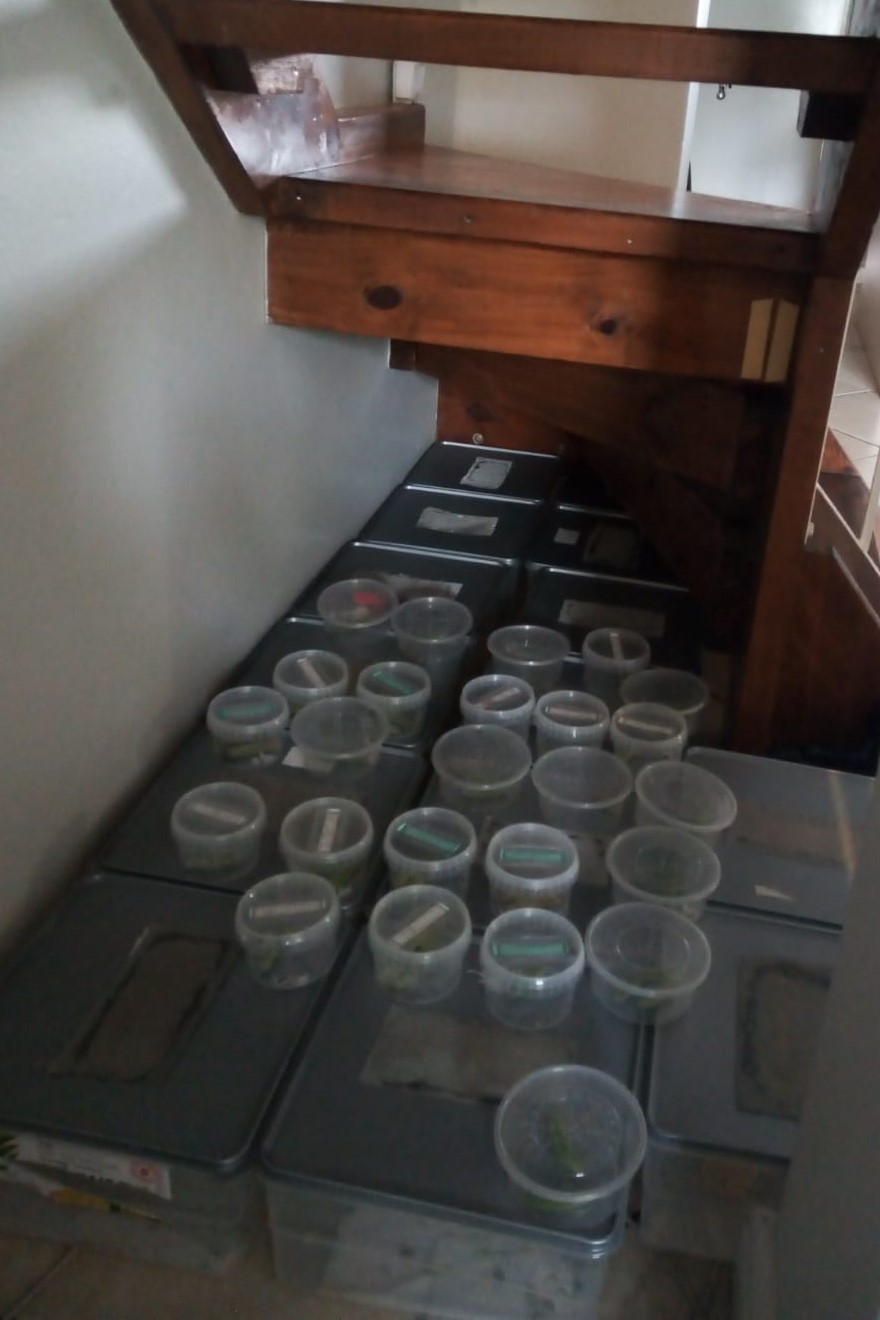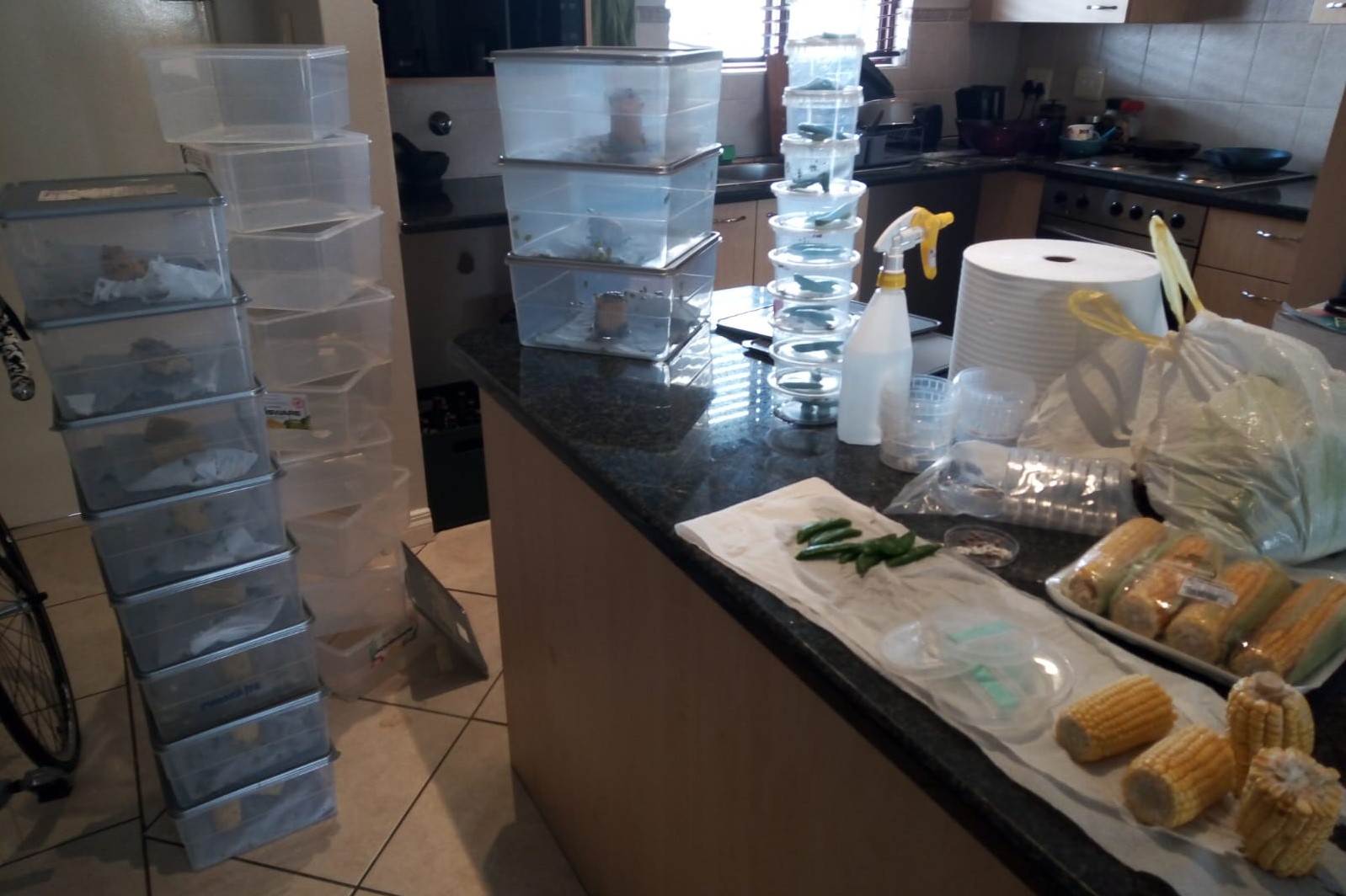No break for insects! 2020-04-17
Elisa Pal, a PhD candidate in FABI’s Macadamia Protection Programme explains how she cares for her colony of stink bugs during the Covid-19 lockdown.
The two-spotted stink bug Bathycoelia distincta is a pentatomid that belongs to the Pentatomidae family, one of the largest families within the Heteroptera with more than 4,700 species distributed worldwide. Commonly referred as stink bugs, these pentatomids are phytophagous and are of economic importance to a large number of crops including macadamia. In South Africa, the annual loss of macadamia nut damage caused by stink bugs is estimated R200 million.
The establishment of a lab-reared B. distincta population was the first crucial step to conduct my research that focuses on the characterisation of pheromones for control, as well as to study insecticide resistance of the two-spotted stinkbug. Eliza explains that when she started her PhD at FABI in October 2018, her first mission was to establish a colony from a wild population. For this she collected eggs patches from commercial orchards. “Since then I have maintained the lab-reared colony and currently have approximately 300 stink bugs at different development stages. This was not an easy task! I started at zero and had to develop and design a system that works for stink bugs, a pest that had not been reared at FABI prior to my arrival.”
The Covid-19 lockdown forced Elisa to seek a solution to ensure her colony of B. distincta survives. “Could you survive for 35 days without food? I don’t think so and I was therefore forced to move them home during the lockdown. The conditions are not optimal (temperature, day/light period), they are stored under my stairs, and I expect to have higher mortality, but the rearing couldn’t stop! The most important was to preserve and save the colony by continuing to feed them even if it’s in my kitchen, on the counter!”
Elisa points out that stink bugs don’t stink too much if you change their food and clean their boxes regularly!





